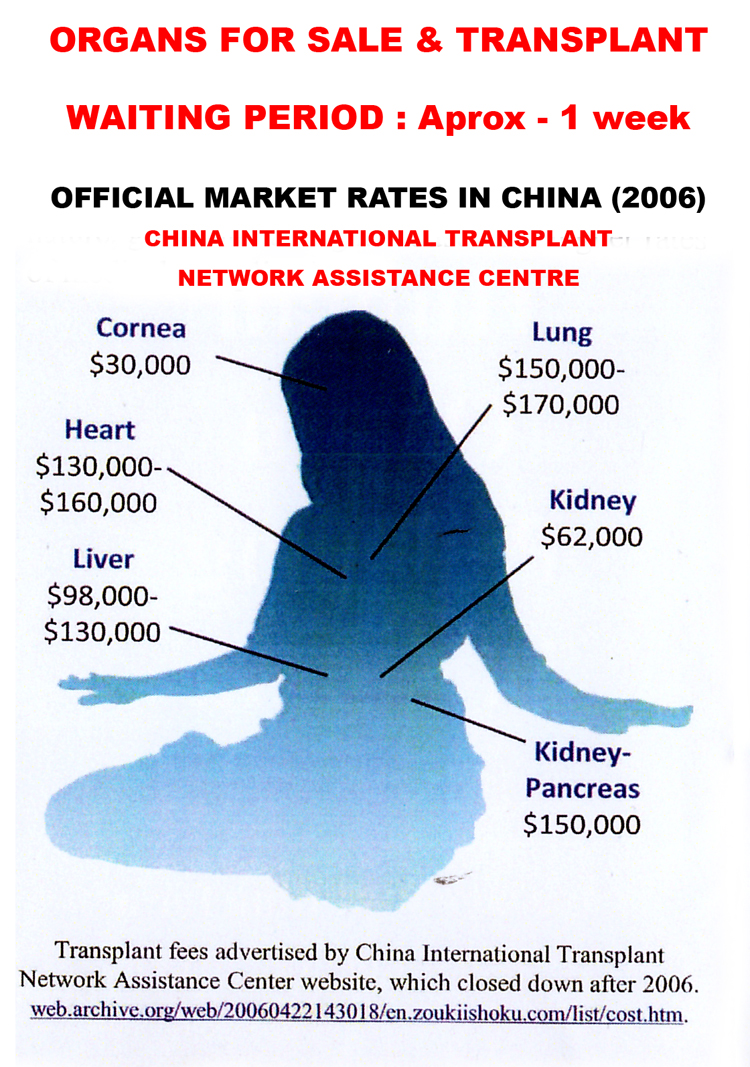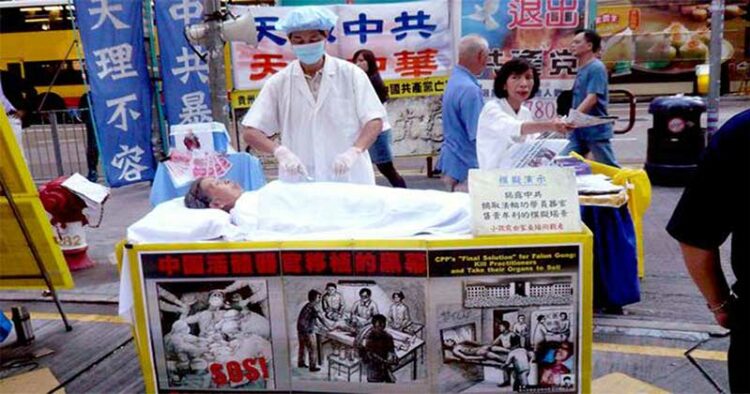The Chinese Government, known for its iron curtain over the flow of information across Chinese borders and intense surveillance of its citizens, is now caught in a new international controversy. Some international human rights groups and parliamentarians from over a dozen countries have expressed fears about the medical and demographic profiling of Tibetan people living under Chinese control since the Chinese People’s Liberation Army (PLA) ‘liberated’ Tibet in 1951. One such campaign is about mass blood sampling of Tibetan people for their DNA profiling, and the other is mass scanning of the iris of Tibetan and Hui Muslims living in the Amdo region of Qinghai province. Similar blood profiling of the Uyghur Muslims living in concentration camps across Xinjiang in the past few years has attracted world attention following complaints of illegal harvesting of organs of healthy internees to support China’s roaring international medical business in human organ transplant. Like Tibet, Xinjiang has been under Chinese occupation since 1949 and was known as the ‘Republic of East Turkistan’ before it was assimilated into China.
Parliamentarians from 15 countries, who are members of the Inter-Parliamentary Alliance on China (IPAC), issued a joint statement on December 19 in which they called upon their respective governments to put pressure on China to stop these medical profiling campaigns. The report also asked the free world governments to sanction companies that are involved in supplying equipment and chemicals to China to run these programs. The letter was signed jointly by MPs from countries including the USA, the European Union, Canada, the UK, Switzerland, Ukraine, the Czech Republic and New Zealand. The statement also appealed to governments to investigate and suspend business activities with companies supplying biometric and electronic surveillance technology to China for mass surveillance of its citizens and those living under Chinese occupation.
The Tibetan and Uyghur action groups, who are campaigning for the restoration of independence for their respective countries, have alleged that the inclusion of modern medicine tools like DNA profiling and iris scanning at mass levels will help Beijing to further promote China’s inhuman international business of forcibly harvested human organs
Before this joint statement of Parliamentarians, Human Right Watch too reported that PRC authorities have been conducting a mass DNA collection programme in the Tibet Autonomous Region (TAR) since 2016, and it has already covered a third of the Tibetan population which includes children also. The US government has already included the PRC-State-funded gene firm BGI Group in its sanction list for participating in a similar DNA collection campaign in Xinjiang in 2020. Thermo Fisher, a leading American company from Massachusetts known for manufacturing and supplying scientific instrumentation, reagents and consumables, and software services to China, has been in the cross hairs from many human rights groups. The Chinese Government has been using its DNA profiling kits in Tibet and Xinjiang.
On December 22, this year, ‘The citizen Lab’ and the Munk School of Global Affairs and Public Policy at the University of Toronto in Canada released a research-based report which says that the Chinese police have scanned the iris of over 1.2 million citizens of Qinghai province of China for their security database. The biometric scanned data of the iris in a human’s eye is a vital tool to identify an individual among a set of millions of people as it works like an individual’s fingerprint. Qinghai has a dominant population of Tibetan and Hui Muslims because Tibet’s Amdo province was absorbed in Qinghai after China reorganised Tibet. In this exercise, Tibet’s two eastern provinces, namely Kham and Amdo, were sliced into smaller parts which were amalgamated into the adjoining Chinese provinces of Yunnan, Sichuan, Qinghai and Gansu. The remaining one-third of Tibet was rebranded as the ‘Tibet Autonomous Region’ (TAR), which China now claims are the ‘real’ Tibet.
To nullify international criticism of recording iris at the mass level, the Chinese police department claims that the programme is “necessary for mass iris scan collection, including fighting crime, finding missing people, and upgrading national ID cards”. Human rights activists fear that this type of scanning will further strengthen and give new teeth to the already overbearing electronic surveillance system that uses millions of CCTV cameras and face recognition tools which are supported by artificial intelligence.
But the Tibetan and Uyghur action groups, who are campaigning for the restoration of independence for their respective countries, have alleged that the inclusion of modern medicine tools like DNA profiling and iris scanning at mass levels will help Beijing to further promote China’s inhuman international business of forcibly harvested human organs. This multi-billion-dollar business, patronised by senior communist leaders and top military brass of the PLA, has gained extraordinary momentum since 1999. Back then, President Jiang Zemin unleashed a campaign to crush the fast-spreading movement of Falun Gong, which is, in fact, a spiritual movement. Its followers practice Yoga, like health exercises and abstain from vices like alcohol and smoking. In the following years, the human organs harvested from executed political ‘criminals’ and Falun Gong prisoners finally led to an organised and nationwide flourishing medical ‘business.’ This business is based on the database of DNA and blood profiles of the people living in official and undeclared jails of the CCP and also the concentration camps in Xinjiang where nearly three million Uyghurs are interned.

The experts, who are seriously tracking organ transplant business in China, have been alleging that with the help of a national database of ‘donors,’ the perfectly matching victim prisoners who are kept in jails, concentration camps or private hideouts of the people involved in organ trade are plucked out and supplied to the waiting hospitals and surgery ‘shops’
No surprise that China has emerged as the biggest organ transplant centre in the world because of the quick availability of human organs like kidney, liver, cornea, spleen, pancreas and even lungs and hearts at a much lower price compared to any other country. In a recently held international webinar on “Forcibly Harvesting of Human Organs in China” by the Centre for Himalayan Asia Studies and Engagement of New Delhi and Tibetan Youth Congress, Dr Enver Tohti Bughda, an exiled medical doctor of Uygur origin testified and gave gory details of how a nationwide databank of Blood and DNA profile of prisoners is used to provide perfectly matching organs to patients from rich western and Gulf countries on an as short notice as four hours. “While patients needing liver or kidney transplant may have to wait for months or years and spend hundreds of thousands of dollars in a country like America, there are Chinese hospitals who offer a matching organ within four hours of admission and for only a few thousand dollars,” he said. He pointed out that many Chinese hospitals advertise their services of organ transplant at much lower prices than in practice across the world. He referred to instances which prove that live ‘donors’ are transported to some countries as a source of organs like lungs and heart, which cannot survive and are transplanted due to long transportation hours.
Another expert, Jennifer Zeng, used to be a researcher at a top-ranking research centre of the State Council of PRC before she escaped and settled in the USA. As a devoted Falun Gong practitioner and popular for her YouTube channel “Inconvenient Truths by Jennifer Zeng” she is now a leading activist against the forced harvesting of human organs in China. She gave an example of an Israeli patient who was on the long waiting list of a leading heart transplant institute. One day this patient surprised his doctor by telling him that he was going to China, where his heart transplant surgery has been scheduled on a specific day. “The doctor had the shock of his life when the patient returned home after having his transplant in China on the pre-scheduled date. Since the human heart cannot survive outside the human body beyond very few hours, so it must have been a live ‘donor’ with perfectly matching and pre-tested blood profile who had been left to die after his heart was taken out and transplanted in this patient,” she said.
The experts, who are seriously tracking organ transplant business in China, have been alleging that with the help of a national database of ‘donors,’ the perfectly matching victim prisoners who are kept in jails, concentration camps or private hideouts of the people involved in organ trade are plucked out and supplied to the waiting hospitals and surgery ‘shops’. Ethan Gutmann, who is an American author and a research fellow in China Studies at the ‘Victims of Communism Memorial Foundation’ has been engaged in watching trends in China’s business of organ transplants. He says, “Our studies have shown that out of every million internees of Uyghur concentration camps in Xinjiang, somewhere between 25 thousand and 50 thousand Uyghur youth of around 28 age group are killed every year to keep China’s organ transplant business running.”
Dr Tohti points out the vast Chinese data bank of blood profiles and other health details as the real secret of the flourishing organ transplant business in today’s China. He says, “This business is thriving in China only because this database provides perfect victim donors who are allowed to be murdered on the surgeon’s table.” The statement of parliamentarians of IPAC and various human rights groups against the dreaded and inhuman business of forcibly harvested human organs not only exposes the heartless rule of the Communist Party of China, it is also a challenge to the collective conscience of world community and governments.




















Comments